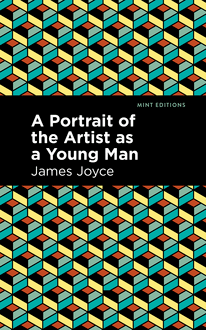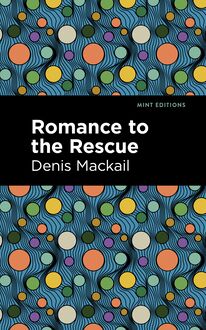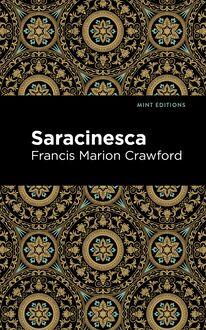-
 Univers
Univers
-
 Ebooks
Ebooks
-
 Livres audio
Livres audio
-
 Presse
Presse
-
 Podcasts
Podcasts
-
 BD
BD
-
 Documents
Documents
-
- Cours
- Révisions
- Ressources pédagogiques
- Sciences de l’éducation
- Manuels scolaires
- Langues
- Travaux de classe
- Annales de BEP
- Etudes supérieures
- Maternelle et primaire
- Fiches de lecture
- Orientation scolaire
- Méthodologie
- Corrigés de devoir
- Annales d’examens et concours
- Annales du bac
- Annales du brevet
- Rapports de stage
La lecture à portée de main
Vous pourrez modifier la taille du texte de cet ouvrage
Découvre YouScribe en t'inscrivant gratuitement
Je m'inscrisDécouvre YouScribe en t'inscrivant gratuitement
Je m'inscrisEn savoir plus
Vous pourrez modifier la taille du texte de cet ouvrage
En savoir plus

Description
Originally published in 1895, a dying man instructs his son to reject their family fortune because of its evil origins and his grandfather’s unsavory past. Yet, his son is enamored by the riches and its potential for good. John Calvert was a successful engineer and heir to a large fortune. While on his deathbed, he tells his son, Dr. Lucian Calvert, the truth about their family’s money and how it was acquired. His dying wish is that Lucian never touches a dime or use it for personal gain. John fails to leave a will, which causes multiple “family members” to stake their claim on his wealth. Despite his father’s haunting words, Lucian becomes engaged in a battle for his highly-coveted estate. Beyond the Dream of Avarice is a cautionary tale about status, wealth and greed. Walter Besant provides an insightful look at the corruptive nature of money and power. Even with a clear warning, man can still fall victim to the desires of the flesh. With an eye-catching new cover, and professionally typeset manuscript, this edition of Beyond the Dream of Avarice is both modern and readable.
Sujets
Informations
| Publié par | Mint Editions |
| Date de parution | 14 mai 2021 |
| Nombre de lectures | 0 |
| EAN13 | 9781513286358 |
| Langue | English |
| Poids de l'ouvrage | 1 Mo |
Informations légales : prix de location à la page 0,0500€. Cette information est donnée uniquement à titre indicatif conformément à la législation en vigueur.
Extrait
Beyond the Dreams of Avarice
Walter Besant
Beyond the Dreams of Avarice was first published in 1895.
This edition published by Mint Editions 2021.
ISBN 9781513281339 | E-ISBN 9781513286358
Published by Mint Editions®
minteditionbooks.com
Publishing Director: Jennifer Newens
Design & Production: Rachel Lopez Metzger
Project Manager: Micaela Clark
Typesetting: Westchester Publishing Services
C ONTENTS I. A S URPRISE AND AN I NJUNCTION II. A P ACKET OF P APERS III. “T HE C HILD IS D EAD” IV. A N I NQUEST OF O FFICE V. T HE F ORTUNE AND THE H OUSE VI. T HE N URSERY VII. T HE P RODIGAL S ON VIII. T HE P ORTRAITS IX. T HE P RESS U PON W INDFALLS X. A RE W E C OUSINS ? XI. Y OUTH IN A G ARRET XII. “A UNT L UCINDA” XIII. T HE V ISION OF THE M OTHERS XIV. A V ISIT TO THE T REASURY XV. H UNDREDS OF C LAIMANTS XVI. T HE M ISSING L INK XVII. T HE B EGINNING OF THE C LOUD XVIII. T HE B OX OF A CCOUNT- B OOKS XIX. C ALVERY B URLEY’S A CCOUNT OF THE M ATTER XX. L UCIAN ON THE D OCUMENT XXI. L UCINDA A VERY XXII. T HE A USTRALIANS XXIII. T HE F IRST P ATIENT XXIV. H ERBERT AND THE P ORTRAITS XXV. W HO A M I? XXVI. A S HAKY P ARTNERSHIP XXVII. T HE G ENEALOGIST XXVIII. A P HYSICIAN’S A DVICE XXIX. T HE M IRACLE XXX. “C ONFESS Y E Y OUR S INS” XXXI. “I MPOSSIBLE TO BE F OUND O UT ! ” XXXII. T HE S HAME OF IT ! XXXIII. T HE S TORY OF A D REAM XXXIV. A NOTHER D REAM OF D EAD M OTHERS XXXV. F AREWELL ! XXXVI. T HE L AST R EMONSTRANCE XXXVII. A C ONSEIL D E F AMILLE XXXVIII. W HAT THE P RESS S AID XXXIX. E ARTHQUAKES AND S HOWERS OF F IRE XL. T HE N OBLER W AY
I
A S URPRISE AND AN I NJUNCTION
“Lucian!” The sick man was propped up by pillows. His hands lay folded outside the coverings. All that could be seen of a face covered with an iron-gray beard was deathly pale. His deep-set eyes were bright. His square, strong brow, under a mass of black hair hardly touched with gray, was pale. “Lucian, I say.” His voice was strong and firm, although the patient repose of his head and hands showed that movement was either difficult or impossible. “Lucian, it is no use trying to deceive me.”
“I do not try to deceive you. There is always hope.”
“I have none. Sit down now and let us talk quietly. It is the last chance, very likely, and I have a good deal to say. Sit down, my son—there—so that I may see you.”
The son obeyed. He placed a chair by the bedside and sat down. He was a young man about seven-and-twenty years of age. He had the same square forehead as his father, and the same deep-set bright black eyes; the same straight black eyebrows. His face was beardless; the features were strong and clearly cut; it was a face of resolution: not what girls call a handsome face, but a face of intellectual power, a responsible face, a masterful face. His broad shoulders and tall, strong figure increased the sense of personal force which accompanied the presence of Lucian Calvert.
“The weakest point about human knowledge,” said the sick man, philosophizing from habit, “is that we never seem to make any real advance in keeping the machinery in order, or in setting it right when it gets wrong.” He was a mechanical engineer by calling, and of no mean reputation. “When the machinery goes wrong, the works stop. Then we have to throw away the engine. She can’t be repaired. Why don’t you learn how to tinker it up, you doctors?”
The son, who was a physician, shook his head.
“We do our best,” he said. “But we are only beginning.”
“Why don’t you learn how to set the thing going again? Let the machine run down, and then take it to pieces and mend it. Get up steam again, and then run her for another spell. That’s what you ought to do, Lucian.”
“You are talking like yourself again, father.”
“I suppose,” he went on, “that if men had by their own wit invented this machine of the body, if they had built it up, bit by bit, as we fellows have done with our engines, they would understand the thing better. As it is, we must pay for ignorance. A man finds he has got to die at fifty-five because the doctors know nothing but symptoms. Fifty-five! In the very middle of one’s work! It’s disgusting. Just beginning, so to speak, and all his knowledge wasted—gone—dissipated—unless, somehow, there’s the conservation of intellectual energy.”
“Perhaps there is,” said his son. “As you say, we understand little more than symptoms, which is the reason why there is always hope.”
But he spoke without assurance.
“Never mind myself,” the father replied. “About you, Lucian.”
“Don’t think about me; I shall do very well.”
“I must think about you, my dear boy, because it is impossible to think about myself. Last night I had a dream. I was floating in dark space, with nothing to think about. And it was maddening. I don’t suppose that death means that. Well, I shall learn what it means in a day or two. There’s the money question. I never tried to save money. I was set dead against saving quite early in life. Had good reason to hate and loathe saving. But I believe that Tom Nicholson has got something of mine—something that rolled in—and there’s your mother’s money. You won’t starve. And you’ve got your profession.”
“I shall do, sir.”
“I think you will. I’ve always thought you would. You’ve got it written on your face. If you keep your eyes in the right direction—in the direction of work—you’ll do very well. You will either go up steadily or you will go down swiftly. It is the gutter or the topmost round for you.”
He paused. The exertion of talking was too great for his strength.
“Rest, father,” said the son, touching the sick man’s pulse. “Rest, and talk again tomorrow.”
“Who will talk with me tomorrow? Wait a moment, Lucian. Lift my head. So. That’s better. I breathe again. Now—as soon as I am buried, you must communicate the news of my death—to my father.”
“To whom?” Lucian started. He thought his father was off his head.
“To my father, Lucian. I have never told you that I have a father still living.”
Imagine, dear reader. This young man had lived seven-and-twenty years in the world, and always in the belief that his father was an only child, and that his grandfather was dead, and that there were no cousins, or if any, then perhaps cousins not desirable. If you remember this, you may perhaps understand the amazement of this young man. He sprang to his feet and bent over the sick man. No; his eyes were steady. There was no outward sign of wandering.
“My father, Lucian,” he repeated. “I am not delirious, I assure you.”
“Your father? Why? Where is he? What is he? Is he—perhaps—poor?”
“He is a very old man; he is over ninety years of age. And he is not poor at all. His poverty is not the reason why you have never heard of him.”
“Oh! Then, why—”
“Patience, my son. He is neither poor nor obscure. He is famous; in fact, so famous that I resolved to begin the world for myself without his reputation on my back. A parent’s greatness may hamper a young man at the outset. So I left him.”
“His reputation? We are, then, connected with a man of reputation.” But Lucian spoke dubiously.
“You are, as you will shortly, perhaps, discover. I suppose he no longer follows his profession, being now so old.”
“What profession?”
“Destruction and Ruin,” replied the sick man, shortly.
“Oh!” His son asked no further questions. Perhaps he felt that to learn more would make him no happier. A strange profession, however, “Destruction and Ruin.”
“I changed my name when I left the family home. So that you have no ancestors, fortunately, except myself. You are like Seth, the son of Adam.”
“No ancestors? But we must have ancestors.”
“If you want to learn all about them, you can. Tom Nicholson knows. Tom Nicholson, the lawyer—he knows. He has got some papers of mine, that I drew up a long time ago. It might be better for you to go on in ignorance. On the other hand—well, choose for yourself. Read the papers, if you like, and find out what manner of people your ancestors were. Nicholson will give you your grandfather’s address. Tell him, without revealing yourself or the name that I have borne—or your own relation to me—tell him simply that I am dead.”
“Very well, sir. I will do what you desire.”
“One thing more. It is my earnest wish—I do not command, my son; no man, not even a father, has the right to command another—but it is my wish that you may never be invited or tempted to resume the name that I abandoned, or to claim kin with any of the family which I have renounced, or to take one single farthing of the fortune which your ancestors have amassed. Our money has been the curse of us for two hundred years. You may learn, if you please, from Tom Nicholson the history of the family. From father to son—from father to son. It was got by dishonor; it has been increased and multiplied by dishonor; it has been attended with dishonor. Fraud and crime, madness, selfishness, hardness of heart—pitiless hardness of heart—have gone with it. Lucian, when you have learned the history of your ancestors, you will understand why I left the house full of wretched memories and renounced them all. And if I judge you aright, you will be ready to renounce them, too.”
“I shall remember your wish, sir,” said his son, gravely. “But I do not understand how the question of money can arise, since your father is in ignorance of my very existence.”
“Best so; best so,” said the sick man. “Then you cannot be tempted.”
For one so weak this long conversation was a great effort. He closed his eyes and spoke no more.
The young man sat down again and watched. But he was strangely agitated. What did his father mean? What kind of profession was that which could be described as Destruction and Ruin?
Nothing more was said upon the subject at all, for the machinery proved so much out of gear that it suddenly stopped. And as no one could possibly set it going again, there was nothing left but to put away the engine in the place where people put away all the broken engines.
When the funeral was o
-
 Univers
Univers
-
 Ebooks
Ebooks
-
 Livres audio
Livres audio
-
 Presse
Presse
-
 Podcasts
Podcasts
-
 BD
BD
-
 Documents
Documents
-
Jeunesse
-
Littérature
-
Ressources professionnelles
-
Santé et bien-être
-
Savoirs
-
Education
-
Loisirs et hobbies
-
Art, musique et cinéma
-
Actualité et débat de société
-
Jeunesse
-
Littérature
-
Ressources professionnelles
-
Santé et bien-être
-
Savoirs
-
Education
-
Loisirs et hobbies
-
Art, musique et cinéma
-
Actualité et débat de société
-
Actualités
-
Lifestyle
-
Presse jeunesse
-
Presse professionnelle
-
Pratique
-
Presse sportive
-
Presse internationale
-
Culture & Médias
-
Action et Aventures
-
Science-fiction et Fantasy
-
Société
-
Jeunesse
-
Littérature
-
Ressources professionnelles
-
Santé et bien-être
-
Savoirs
-
Education
-
Loisirs et hobbies
-
Art, musique et cinéma
-
Actualité et débat de société
- Cours
- Révisions
- Ressources pédagogiques
- Sciences de l’éducation
- Manuels scolaires
- Langues
- Travaux de classe
- Annales de BEP
- Etudes supérieures
- Maternelle et primaire
- Fiches de lecture
- Orientation scolaire
- Méthodologie
- Corrigés de devoir
- Annales d’examens et concours
- Annales du bac
- Annales du brevet
- Rapports de stage




















